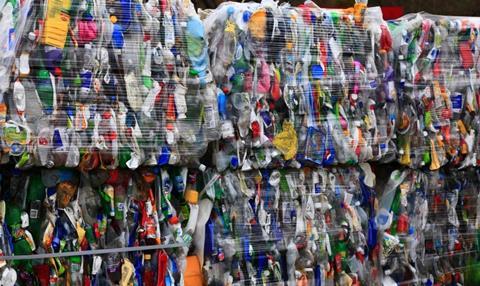Climate action NGO, WRAP has published its annual updates of its voluntary agreements for the food, plastics and textiles sectors. The publication comes with a stark warning that while the UK is making some progress in tackling key environmental issues, a lot more collaboration and action is needed from businesses to achieve the level of change required, and to keep climate goals within reach.

With the food system responsible for 37% of global greenhouse gas emissions, enormous stresses on fresh water supplies and the primary driver of biodiversity loss, transforming the food system is critical to fighting climate change.
As the effects of climate change become more damaging and food security is tested to the limit, WRAP says the Courtauld Commitment 2030 is more important than ever. Many businesses are working together to transform the food system, but the need for accelerated action has never been more urgent – not least around household food waste - and it is critical that the whole sector unites behind Courtauld 2030 and joins those leading the vanguard.
Since its inception in 2005, the Courtauld Commitment has helped transform the UK’s food system. The agreement is a catalyst for change around reductions in GHGs and food waste, and is delivering sustainable water management. Businesses that have been members of Courtauld for longer have seen greater reductions in food waste. Highlights in the latest progress report include:
- 16% of UK food businesses measured emissions accurately and consistently through the world-leading Scope 3 GHG measurement and reporting Protocols for the food sector.
- The Courtauld 2030 Water Roadmap was published in partnership with WWF and Rivers Trust. More than 50 businesses that have committed to protecting critical water resources under an eight-year programme are moving the UK closer to delivering UN Sustainable Development Goal 6. Seven water action projects are underway that span the UK, Kenya, South Africa and Spain.
- The Food Waste Reduction Roadmap, launched by WRAP and the IGD in 2018, has seen the number of food businesses involved grow to 300, including all of the major grocery retailers. Now 221 large businesses are implementing ‘Target, Measure, Act’, an increase of 7% year-on-year representing 60% of their sectors with twenty whole chain plans now in progress or completed, double the number last year. Retail food waste has reduced by 19,000 tonnes (8%) between 2018 to 2021, saving almost £62 million ending up as waste and the production of some 60,000 tonnes of GHG emissions.
- Food Waste Action Week went global with Weeks running in twelve countries, in only its second year. In the UK, the campaign reached over eight million people.
WRAP also pioneered cross-sector collaboration with an 18-month research project with Courtauld 2030 signatories and UK Plastics Pact members, proving that selling fresh produce loose has a huge potential to reduce food waste and plastic waste in the home.
Reducing food waste and plastic packaging dispelled the notion that plastic prolongs the life of fresh uncut produce. As a result, multiple retailers began removing Best Before dates with Asda, Lidl, M&S, Ocado, Sainsbury's, Tesco and Waitrose removing labels on a significant number of lines, and Aldi, Co-op and Morrisons trialling removal.
While positive work continues across the supply chain, WRAP stresses the need for significantly higher levels of investment to support its water programme to triple the number of catchment projects by 2030. The organisation also says that more businesses must urgently adopt its reporting protocols to consistently measure scope three GHG emissions, and work with WRAP to develop and implement net zero transition plans. Crucially, while reductions in food waste continue in the supply chain, the NGO stresses the need for expanded action through its Target, Measure, Act approach; with the hospitality sector facing significant challenges, and measurement and reporting critical to its success.
This story was originally published on a previous version of the Meat Management website and so there may be some missing images and formatting issues.












